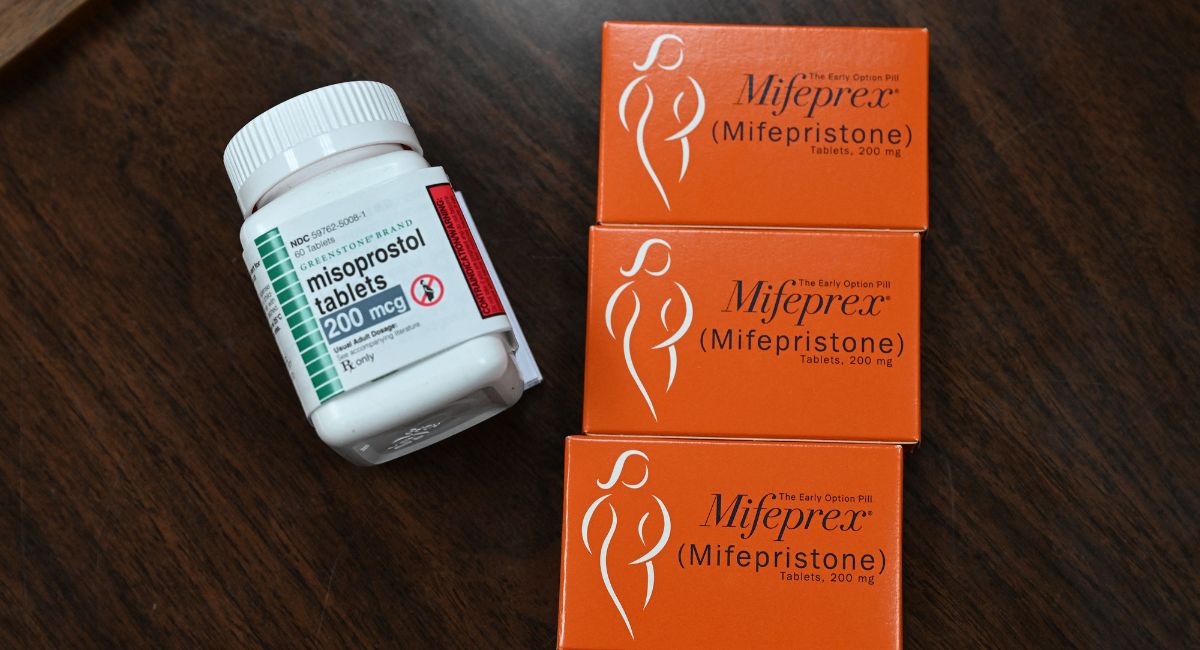Update 5/30/24: Louisiana Governor Jeff Landry signed SB 276 into law on May 24, making Louisiana the first state to classify the abortion pill as a controlled substance. Landry’s signature came just one day after the legislation passed the Senate with a 29-7 vote.
Landry called the bill a “common sense” measure protecting women. “Requiring an abortion inducing drug to be obtained with a prescription and criminalizing the use of an abortion drug on an unsuspecting mother is nothing short of common sense,” he wrote on X (formerly Twitter). “This bill protects women across Louisiana and I was proud to sign this bill into law today.”
The law will take effect October 1.
Requiring an abortion inducing drug to be obtained with a prescription and criminalizing the use of an abortion drug on an unsuspecting mother is nothing short of common sense. This bill protects women across Louisiana and I was proud to sign this bill into law today.
Thanks to… pic.twitter.com/WJEjuqlw2Y
— Governor Jeff Landry (@LAGovJeffLandry) May 24, 2024
5/21/24: The Louisiana House passed a bill on Tuesday to create the crime of “coerced criminal abortion by means of fraud.” The bill was approved in a 64-29 vote.
Senate Bill 276, the Abortion by Fraud Criminalization Act, states that a criminal abortion “by means of an abortion-inducing drug is committed when a person knowingly causes, or attempts to cause, an abortion to occur by means of delivering, dispensing, distributing, or providing a pregnant woman with an abortion-inducing drug.”
The majority of preborn children are protected from abortion in Louisiana, although there are exceptions to allow the direct and intentional killing of preborn children when the life of the mother is in danger (though induced abortion is never medically necessary) and for children diagnosed with a health condition during pregnancy.
The bill prohibits a person from giving abortion-inducing drugs to a pregnant woman without her knowledge or consent in order to cause an abortion. Whoever is guilty of doing so would face imprisonment “at hard labor for not less than five nor more than ten years, fined not less than ten thousand nor more than seventy-five thousand dollars, or both.” If the child is more than three months of gestational age when the abortion drugs are given, the perpetrator would face 10 to 20 years in prison “at hard labor” and a fine of $50,000 to $100,000. The harsher punishment, according to the law, is because the further along in pregnancy the woman is when she takes the abortion pill, the greater the risk of complications.
Sen. Thomas Pressly authored the bill following his sister’s poisoning at the hands of her former husband while she was pregnant. Mason Herring attempted to give Pressly’s sister Catherine Herring seven spiked drinks with the abortion pill drugs mifepristone and misoprostol. The baby survived but was born 10 weeks early. He was charged with injury to a child and assault of a pregnant woman and was sentenced to 180 days in jail and 10 years of probation.
READ: Owner of three surrogacy agencies arrested for fraud
Rather than report the bill as one to prevent forced abortions, major media outlets have focused on an amendment added by Pressly that would classify abortion drugs as controlled substances under the Uniform Controlled Dangerous Substance Abuse Law.
BREAKING: Over 200 Louisiana doctors have signed a letter urging Republican Senator @tapressly NOT to classify the abortion medications mifepristone and misoprostol as controlled substances in Louisiana. Here’s the letter and @lorenaoneil scoophttps://t.co/XFnjRDJZvA pic.twitter.com/AbQDxEdImt
— Rosemary Westwood (@rosiewestwood) May 8, 2024
Drugs classified as “controlled substances” must only be issued for “a legitimate medical purpose by a practitioner acting in the usual course of a professional practice,” according to Section IV of the Drug Enforcement Administration Practitioner’s Manual. While it has been reported that more than 200 Louisiana doctors signed a letter urging Sen. Pressly not to classify the abortion pill drugs as controlled substances, he has stated his reasoning. One is to prevent abusive men from drugging women as his sister was drugged and the other is to prevent stockpiling of the abortion pill and treating it as though taking it is not without risk.
“[E]ven in states where abortion is not illegal, you have a 10-week period where it’s not supposed to be written without seeing a doctor at all after 10 weeks of gestation. And we’ve got to make sure that women are being cared for and checked for ectopic pregnancies, as well,” he said. “And I think that’s important to, again, make sure that we were maintaining the doctor-patient relationship rather than having a friend or someone bringing medication into the state. That is concerning in and of itself, and some of that was illegal prior to this legislation passing and hopefully being signed into law shortly. Prescription medication requires a prescription by a doctor or a nurse practitioner or physician assistant.”
He added, “And let’s be clear here. My sister was a victim of a domestic violence that left her that left her bleeding without any knowledge of why she was bleeding other than she had had a drink.”
Sarah Zagorski, Communications Director for Louisiana Right to Life said, “We are grateful that our legislators recognize the dangers of these medications being for sale on the street and online for anyone to abuse. We thank the House for taking action to protect women like Catherine Herring and keeping these abortion pills out of the hands of predators who want to harm women and unborn babies.”
The bill will now return to the state Senate for approval and, if it is approved, will be sent to the governor’s desk.
Update 5/28/24: This article was updated with additional information and a quote from Sen. Pressly.







